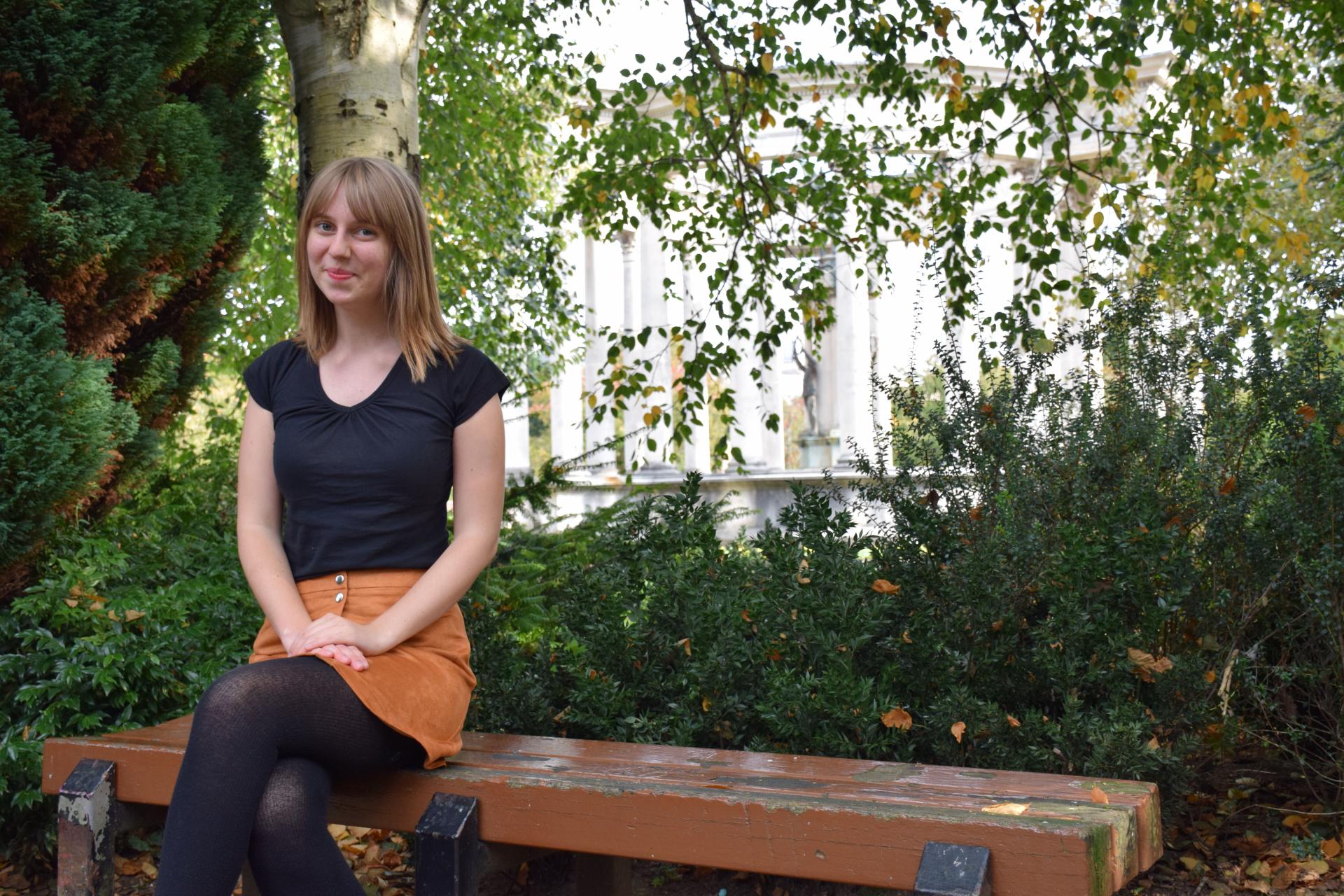Ellie
At the age of 15, Ellie was diagnosed with Hodgkin lymphoma. Here she talks about how she coped with school and treatment

I was 15 and in year 10 at school when I noticed that I was feeling constantly fatigued and breathless. I didn’t worry about it at first, but my symptoms were getting worse - and my inability to wake up without being drenched in sweat was getting difficult to ignore.
I thought I had a winter virus or flu, so after a few months of symptoms, I went to my GP who agreed that was probably the case. However, my prescribed tablets and an inhaler for suspected asthma made no difference, so I was ultimately referred to my local hospital for tests.
I was in hospital for 2 days and had a CT scan and X-rays. From there I moved to a Principle Treatment Centre where I began on steroids and had a Hickman® line fitted. I also had a neck biopsy, lumbar puncture, bone marrow aspiration in the spinal fluid, CT scans and X-rays all working towards figuring out my illness.
By the end of the week, my PET scan confirmed my classical Hodgkin lymphoma, which was by now at Stage 2B. I’d briefly heard about Hodgkin lymphoma in my GCSE class and although I realised it was a blood cancer, I was surprisingly calm. I decided straightaway that a positive attitude was important for me when dealing with this and although obviously shocked, I was also relieved to have any diagnosis. This meant my treatment could start, ultimately improving my health at a faster rate.
I immediately started on 2 cycles of COPP chemotherapy (cyclophosphamide, vincristine, procarbazine and prednisone), and then had a midway PET scan. Fortunately, this showed treatment had been so far successful, but I’d still need to complete 2 cycles of OEPA chemotherapy (vincristine, etoposide, prednisone and doxorubicin). At the end of this, it’d be decided if I’d need radiotherapy, and luckily I didn’t.
Chemotherapy worked well for me. Despite neutropenia, lowered immunity and being on a children’s ward, I avoided getting any serious infections. Hair loss wasn’t the centre of my problems but I can’t imagine it’d be pleasant at any age – perhaps least of all when you’re a 15-year-old girl. But I had a wig which I wore when I went to school or if I was going out, and tended to fluctuate between that and a hat. In fact, I found the effect of the steroids harder to deal with than the hair loss - particularly the moon-like appearance of my face, caused by a slower metabolism and increased appetite.
I'd been determined to keep up my education, as it was an element of my life I felt I maintained control over
My school was generally very accommodating. I’d been determined from the start to keep up my education, as it was an element of my life I felt I maintained control over, and I was desperate not to fall behind with my GCSEs, even though I thought lymphoma and treatment would dictate this. Luckily, I managed to attend about 70% of the time. A nurse came into school to take blood and do tests each week so I wouldn’t need to go to hospital specifically for that. And when I did need to stay in hospital, I always asked school to send work to me, which was helpful, giving me something productive to do!
Happily, I managed to do well in my exams and was able to move straight onto A-Levels. With everything that had gone on, I didn’t expect to be able to achieve the grades to go to Cardiff University, which was my first choice. I’m now 19 and in my second year studying English Literature and Journalism, and I’m loving the course and my life there.
Having lymphoma has changed my perspective on life. I really treasure things that come my way. A teenage cancer diagnosis has made me more socially aware and keener to get involved with fundraising and giving back to society. For example, I work with a lot of charities, but the one I’m most passionate about is Cardiff Marrow, where I’m Media Coordiantor. Marrow is the student branch of Anthony Nolan, and we sign potential donors to their bone marrow register, as these transplants are often the only lifeline for blood cancer patients, but matches can be so hard to find. Without my own brush with lymphoma, so many of these doors wouldn’t have been opened for me.
October 2015
